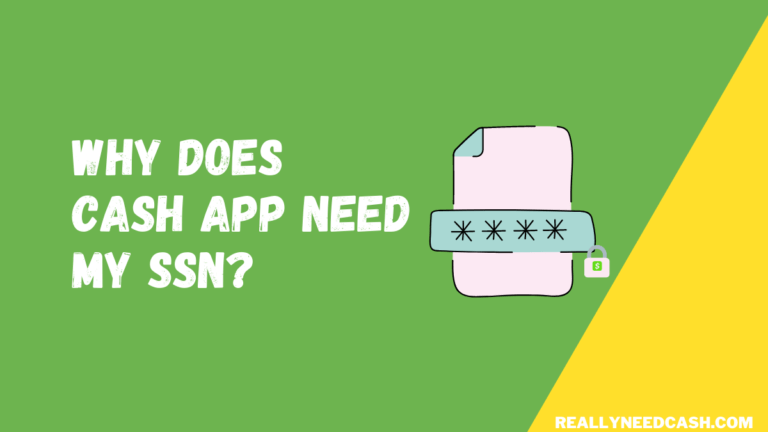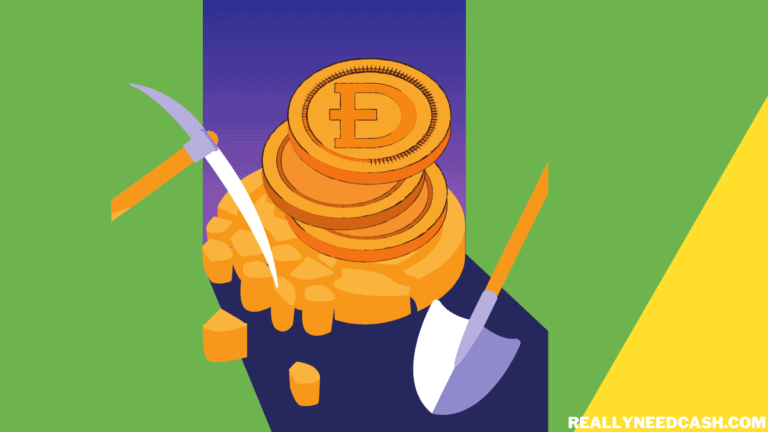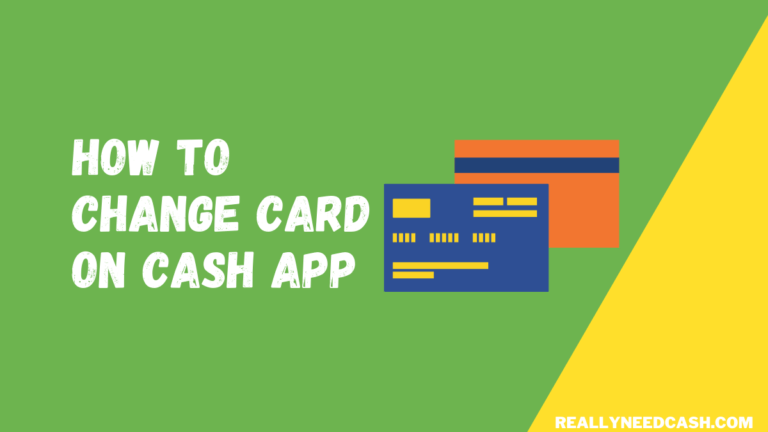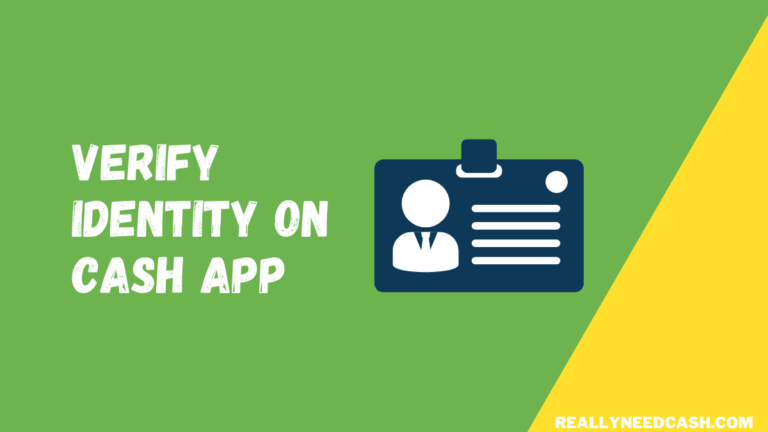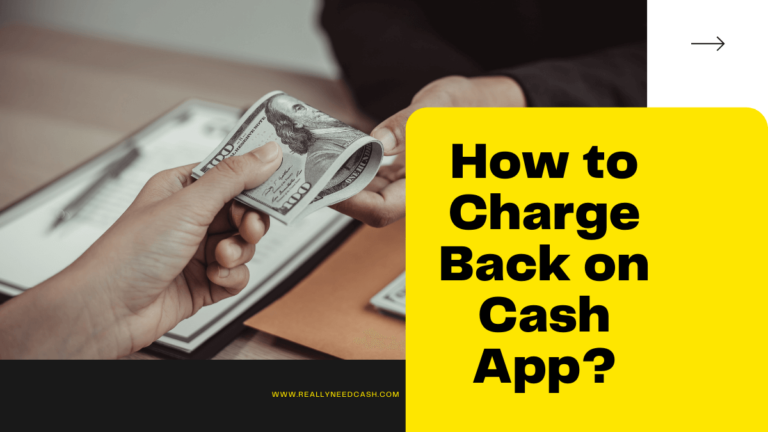Zelle vs. Cash App, how do they compare? Check out our in-depth head-to-head comparison, their Pros and cons to find out which is the better option for your needs.
Zelle vs Cash App: Cash App Users can make peer-to-peer (P2P) payments easily via Cash App which is perhaps one of the fastest ways that you can send money from one person to another VS Zelle – Users can send money with no fee and requires no recipient banking info with no receiving limits.
Zelle and Cash App are two of the most used mobile payment apps out there, but how do they fare when it comes to safety, convenience, and other features?
Read: Does Netspend Work With Zelle?
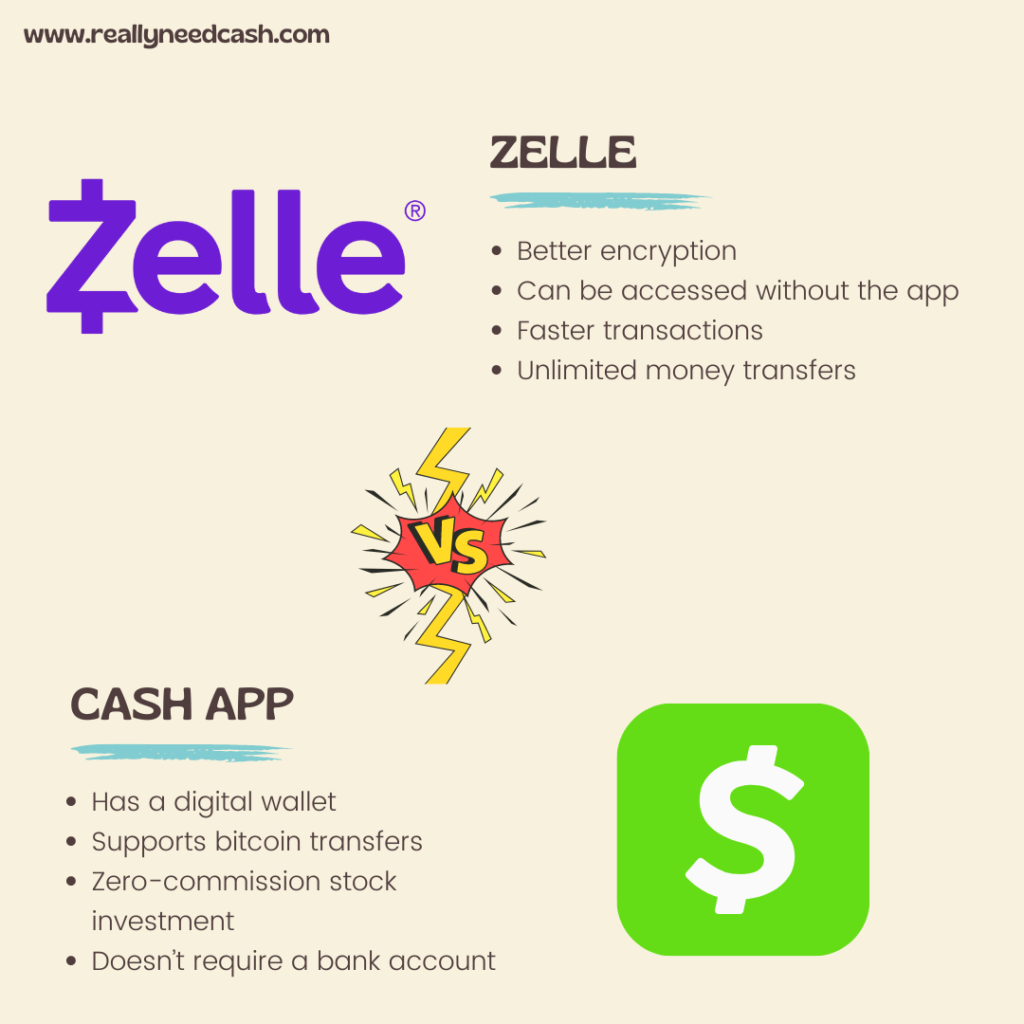
Zelle vs Cash App: Short Answer
Zelle is a better option for you and a mobile app solution for your needs if you already have a bank account and mostly send money to people you know. On the flip side, Cash App is a much better option for those who may send/receive money to/from people they know or don’t know.
It also has an integrated digital wallet, giving you a safe alternative to opening a bank account.
Balance Keeping
Cash App has a wallet that allows you to keep a balance, just like a bank account. On the flip side, Zelle transactions are transferred directly to and from your accounts.
There are some advantages and disadvantages to both approaches. In the case of Cash App, having a wallet makes it easier for you to manage your finances and set budgets. The downside is that you’ll have to wait a few days for the transactions to go through.
Per contra, Zelle’s approach has the upper edge when it comes to speed since payments and transactions are made almost instantly.
It’s also worth mentioning that you won’t earn any interest on the money you keep in your Cash App wallet. With Zelle, the money is always in your bank account, ensuring that you earn interest on your net amount of money.
Winner: Cash App
App Independence
Most mobile payment platforms can only be accessed through the app, but with Zelle, there’s a little trick you can do to use it without actually opening the app.
Since Zelle is linked with a wide range of financial institutions, banks, and credit unions, many of them offer it as a service for their customers. In that case, you might be able to access Zelle through your bank’s online banking service. One of the most popular institutions that offer this service is First Alliance Credit Union.
The Cash App doesn’t have such a feature. The only way you can access Cash App is to just download the app.
Winner: Zelle
Safety
When it comes to safety, Zelle blows Cash App out of the water. Zelle’s data encryption is quite advanced; it’s close to what you’d get when you use your bank’s online services.
Scammers will need to do a lot of work to access your personal information on Zelle, to the point that it’s nearly impossible.
However, it’s essential to keep in mind that Zelle isn’t fraud-proof; there have been some famous fraud incidents with Zelle users. And since Zelle doesn’t offer fraud protection for authorized payments, it’s usually too late to repair the damage once it’s done. The same goes for the Cash App.
One example is purchasing something online. If you didn’t receive the item, there’s nothing you can do to get a refund from Zelle/Cash App.
So, it’d be best to only use these apps to transfer money to and from people you know.
Winner: Zelle
Transfer Limits
Zelle doesn’t have any restrictions when it comes to the amount of money you can send from the app. This isn’t the case with Cash App, though; you may only send a maximum of $250/month if your account is unverified. However, after verifying it, you’ll be able to send up to $2500/month.
This may not be a major issue if you only use your mobile payment apps for small, casual transfers. But if you’re planning on relying on it for large transfers, Zelle would be the better choice.
Winner: Zelle
Stock Market Investment
Both Zelle and Cash App let you invest in stocks with the same app you use to make your day-to-day transactions.
In other words, you’ll be able to buy stocks instantly through Cash App or Zelle without having to opt for a stockbroker.
Winner: Tie
International Transfers
Cash App allows you to make international transfers, while Zelle doesn’t. So, if you regularly need to send or receive money to and from people in other countries, Cash App would serve you better.
Winner: Cash App
Zelle: Pros and Cons
| Pros | Cons |
| 1. Better encryption 2. Can be accessed without the app 3. Faster transactions Unlimited money transfersSupports crypto 4. Supports stock investment | 1. No fraud protection 2. No international transfers |
Cash App: Pros and Cons
| Pros | Cons |
| 1. Has a digital wallet 2. Supports bitcoin transfersZero-commission stock investment 3. Doesn’t require a bank account 4. Supports international transfers | 1. Has a maximum monthly transfer limit 2. Doesn’t support credit cards |
Online payment solutions have grown tremendously over the past few years. And while online wallets and banks have been around for quite a while now, their popularity wasn’t that significant in the 2000s and early 2010s.
Zelle vs. Cash App: The Final Verdict
To recap, both Zelle and Cash App are very capable, but each will have its own share of fans for various reasons.
Zelle is more secure, and making transactions takes little to no time, but it won’t let you keep a balance in a digital wallet. Cash App lacks credit card support, but it has a digital wallet, which is a pretty nice feature for those who like to go cashless. It also supports international transfers, which can be pretty important to some users.
Not to mention, you don’t need to open a bank account to start using Cash App. But since a Zelle user would already have a bank account, a digital wallet might not be that important to them.
On a side note, remember that Cash App has a monthly transfer limit of $2500 for verified accounts, while Zelle doesn’t.


